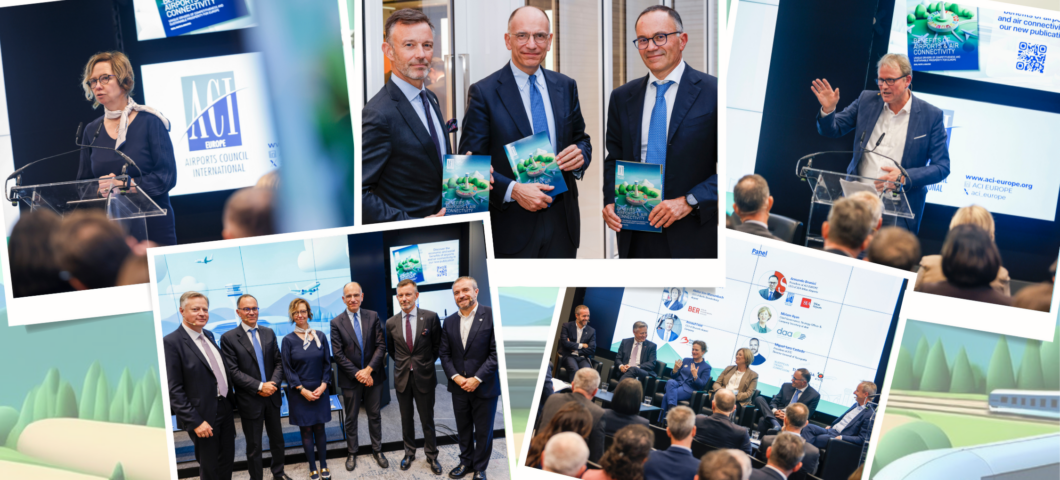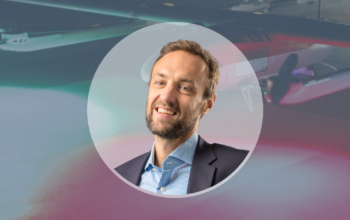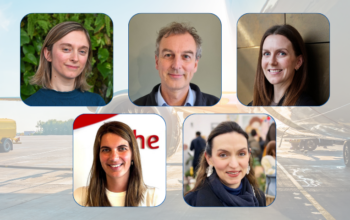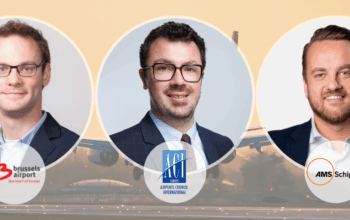
The Five Minute Feature: Airport Economics Symposium
On 17 October 2024, ACI EUROPE hosted the Airport Economics Symposium in Brussels, a high-level event showcasing the socio-economic importance of airports and air connectivity, whilst addressing the urgent need for sustainable practices within the aviation sector. Airports are not just travel hubs – they’re economic powerhouses driving jobs, trade, and prosperity across Europe. But with the aviation industry facing increasing pressure to decarbonise, how can it balance environmental goals with its pivotal role in boosting the continent’s competitiveness? Read on for the answers from the top voices in aviation, policy, and regulation today.
Airports: Europe’s Job Machines and Economic Drivers
At the heart of the event was a new study by ACI EUROPE, which lays bare just how important European airports are to the continent’s economy. The study reveals that airports generate 14 million jobs and contribute €851 billion into the economy every year – which represents 5% of Europe’s GDP. The numbers speak for themselves: for every 10% increase in air connectivity, GDP per capita rises by 0.5%, and jobs increase by 1.6%.
For the first time, the study quantified how increased air connectivity positively impacts societal issues such as poverty, education, and gender equality. A 10% rise in air connectivity, for example, correlates with a 14% drop in poverty rates and a 9% boost in access to education. The study also found that air connectivity enhances life satisfaction (+1.2%) and drives investments in research and development (+8.5%), as well as a plethora of other societal benefits. These findings underscore how airports play a critical role not just in economic growth, but also in advancing key social objectives, including those aligned with the United Nations Sustainable Development Goals.
Beginning the Airport Economics Symposium, Olivier Jankovec, Director General of ACI EUROPE, called airports ‘irreplaceable drivers of competitiveness’ for Europe, underscoring that they don’t just support travel and tourism but also fuel trade, investment, productivity, and Europe’s society. He stressed, however, that whilst sustainability is a top priority, Europe must find ways to decarbonise aviation without stifling its socioeconomic benefits.
Maintaining Growth; Ensuring Sustainability
A recurring theme throughout the symposium’s high-level panel discussion was often little and fragmented policy support offered to airports as Europe tackles both decarbonisation and necessary industrial growth. With airports firmly and proactively committed to achieving Net Zero carbon emissions for operations under their control by 2050, the question is whether the policy and regulatory support necessary to achieve this exists in Europe.
In his keynote speech, Enrico Letta, President of the Institute Jacques Delors, Member of the Italian Chamber of Deputies and author of the High Level Report on the Future of the Single Market, expanded on this theme. He warned that Europe’s competitiveness is at risk due to fragmented policies and urged for more cohesion in how the EU approaches air connectivity and the aviation sector. ‘We must overcome fragmentation,’ Letta declared, stressing that pragmatic solutions – not ideological divides – are needed to drive the sector forward.
Armando Brunini, President of ACI EUROPE and CEO of SEA Milan Airports, called for a ‘new aviation deal for Europe’ that would place aviation firmly within the upcoming European Commission Clean Industrial Deal. Brunini argued that to maintain air connectivity’s socio-economic benefits whilst achieving climate goals, the aviation sector needs better policies and financial backing.
Miriam Ryan, Chief Governance and Strategy Officer of the daa, echoed this sentiment, emphasising that airports need the capacity to invest in sustainability initiatives. ‘It’s not just about the green agenda; it’s about our licence to operate,’ she said, referring to the delicate balance between connectivity and environmental responsibility.
Miguel Sanz Castedo, President of the European Travel Commission and Director General of Turespaña, argued that tourism’s success depends on air connectivity, and that investment in greener, more efficient infrastructure is essential to sustaining healthy, long-term growth.
Sustainability Takes Centre Stage
Decarbonisation was a green thread throughout the discussion, with several panellists pointing out the tough balancing act Europe faces: how to stay green without losing competitiveness. Magda Kopczyńska, Director General of DG MOVE, shared Enrico Letta’s concerns about the lack of cohesion hampering the efforts of airports to sustainably grow – urging airports to talk to their national governments and try to influence the debates at national level. She noted that while industrial revival and competitiveness are becoming focal points once again, the EU Green Deal remains the guiding light.
Filip Cornelis, Director of Aviation at DG MOVE, was clear that the private sector would need to shoulder a large portion of the financial burden for decarbonising aviation, noting that the €61 billion needed for sustainable aviation fuels (SAF) and other green measures noted in the recent Draghi Report can’t come solely from public coffers. He also called for more innovation and venture capital in Europe to develop new green technologies.
Capacity Crunch: A Growing Challenge
The issue of airport capacity was hot on the agenda – with several panellists voicing concerns about how to handle growing demand for air travel.
Arnaud Feist, CEO of Brussels Airport Company, highlighted the challenges of operating under a movement cap, warning that limiting airport capacity could slow national economic development. He pointed out that Brussels Airport alone creates 85,000 jobs, so curbing its growth would be a detrimental blow to the economy and put a considerable portion of these jobs at risk.
Filip Cornelis commented that Europe’s aviation framework needs to shift from focusing on simply increasing capacity to redistributing traffic more efficiently, with Miguel Sanz Castedo proposing that part of the solution lies in better collaboration between airports and the tourism industry. By promoting lesser-known destinations, the sector can ease the pressure on major airports and create new opportunities for growth, he argued.
Miriam Ryan, echoing these concerns, highlighted the current restrictions Dublin Airport faces, explaining that they are already operating near their annual cap of 32 million passengers, which upon introduction back in 2007 was motivated by road congestion on the access roads to the airport. The road traffic problem no longer being an issue thanks to investments made by the airport operator, daa is now campaigning for raising of the cap – an effort which proves difficult in the current regulatory environment. Ryan emphasised that whilst airports are eager to invest in infrastructure and new technologies to boost efficiency and sustainability, they often encounter regulatory barriers that prevent them from fully utilising these investments. This regulatory disconnect, she argued, hampers the sector’s ability to meet future capacity needs in a sustainable manner.
Aletta von Massenbach, CEO of Berlin Brandenburg Airport, argued that it is no longer the case that national carriers are dominating the market – whilst Lufthansa’s market share has grown by 26%, the diversity in the European airline market and expansion of international routes has put additional pressure on airports to accommodate growing demand.
Towards the Future?
Jens Gieseke, MEP, rounded off the symposium by reiterating the importance of efficiency and regulatory reform in tackling the challenges facing Europe’s aviation sector. He voiced strong support for the recommendations of the Draghi report, particularly the call for optimal use of existing capacity. Jens stressed that Europe’s airports are ready to deliver, but they need a more flexible, streamlined regulatory environment to do so. ‘We must reduce bureaucracy,’ he said, expressing optimism that better regulation and clear guidance would pave the way for Europe’s airports to thrive in a sustainable future.
As Europe grapples with the joint issue of boosting air connectivity whilst cutting emissions, the symposium highlighted the growing belief amongst stakeholders that aviation is being seen as a fundamental driver of competitiveness for Europe. ‘I have a feeling that the momentum is there,’ Letta stated. ‘I strongly believe and hope that the role of stakeholders, and the role of ACI EUROPE, will be crucial at both an EU and a national level.’



